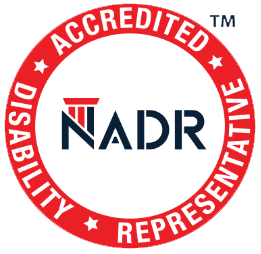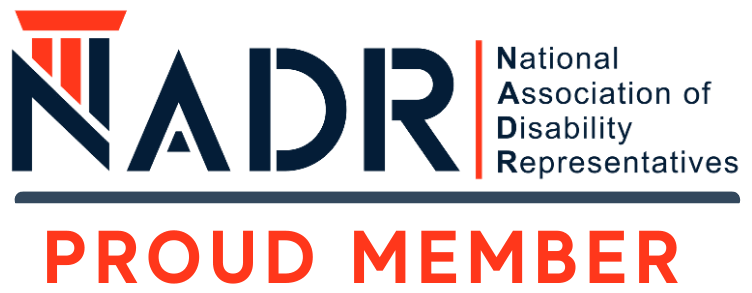Disability Benefits for Mental Disorders: Am I Eligible?
The Social Security Administration (SSA) provides disability benefits for many different mental disorders. These disorders include congenital disorders, conditions resulting from physical or mental trauma, and degenerative disorders.
Regardless of your specific disorder, the SSA determines eligibility for benefits based on the duration and severity of your symptoms. If your disorder renders you unable to work for at least one year, the SSA will probably find you to be eligible for disability benefits. Here is a quick guide to disability benefits for mental disorders and an overview of how the SSA determines eligibility.
Eligibility for Disability Benefits
From the viewpoint of the SSA, the same criteria apply to physical conditions and mental ones. In either case, the SSA requires that the disability:
- Has lasted or will last for at least one year
- Prevents you from doing any work you already know
- Stops you from receiving training for new work
If you meet all of these elements, you can receive disability benefits from the SSA.
Applying the Criteria to Mental Disorders
Instead of relying on your claim that you cannot work, the SSA looks at a specific set of symptoms. Your medical records will show the duration of your symptoms and your prognosis. If the duration of your symptoms exceeds one year, you are considered to have a qualifying long-term disability.
Your medical records will also show whether your symptoms interfere with any of the four areas of mental functioning that are necessary for work.
If your symptoms represent an extreme limitation in at least one of these areas, your disorder prevents you from working or training. Similarly, if your symptoms impose a “marked limitation” in at least two of these areas, your symptoms impair your ability to work or train. In both these cases, you qualify for benefits.
The four areas examined by the SSA include:
1. The Ability to Understand, Remember, or Apply Information
This area requires you to understand instructions and learn procedures to be able to perform a job. You need to be able to explain what you do. You also need to recognize mistakes and know how to correct them. Most importantly, you need to be able to use mental reasoning and judgment to make job-related decisions.
For example, brain damage after a stroke could interfere with your memory. This might represent a significant or marked limitation in this area.
2. An Ability to Interact with Others
This area covers your ability to work alongside co-workers, supervisors, and customers. You need to have the ability to ask for assistance or guidance from supervisors. You need to understand and respond to physical, verbal, and emotional cues. In addition, you must also handle conflicts without excessive irritability, sensitivity, or arguments.
Autism, for example, might prevent you from recognizing and responding to verbal cues. This impairment might pose a significant or marked limitation on your ability to interact with others.
3. Being Able to Concentrate, Persist, or Maintain Pace
For this component, the SSA measures your ability to focus your attention on work and accomplish your tasks effectively. You must be able to work at an appropriate and consistent pace and complete tasks on time. You should also have the ability to ignore distractions.
You’ll need to work closely with others without distracting them. You must also have the ability to work a full shift regularly and without taking excessive breaks. For example, post-traumatic stress disorder (PTSD) can inhibit your ability to concentrate, representing a significant or marked limitation.
4. The Ability to Adapt or Manage Oneself
This section covers your ability to regulate your emotions and behavior at work. You must have the ability to take instruction and respond to demands. You must show flexibility and be able to adapt to changes.
You’ll need to have the ability to manage your symptoms while at work, while fully understanding the difference between good and poor performance of your job duties. Finally, you need to be able to recognize safety hazards and avoid them. The mood swings associated with bipolar disorder, for example, might limit your ability to manage your emotions at work.
Examples of Eligible Mental Disorders
SSA provides benefits for a wide range of disorders. Some examples include:
- Neurocognitive Disorders: These include dementia, traumatic brain injuries, strokes, and cognitive disorders resulting from toxins or drugs.
- Psychotic Disorders: Examples of psychotic disorders include schizophrenia and schizoaffective disorder.
- Mood Disorders: These disorders include depression, bipolar disorder, and cyclothymic disorder.
- Intellectual Disorder: Refer to congenital intellectual disabilities that manifest before your early 20’s.
- Anxiety Disorders: Examples of anxiety disorders include panic disorder, social anxiety disorder, and obsessive-compulsive disorder
- Somatic Symptom Disorders: These include any mental disorders that manifest unexplained physical symptoms.
- Personality Disorders: These disorders, such as borderline and schizoid personalities, manifest with detachment, impulsiveness, and distrust.
- Autism Spectrum Disorder: ASD is a developmental disability that can cause significant social, communication, and behavioral challenges.
- Neurodevelopmental Disorders: Examples of neurodevelopmental disorders include Tourette syndrome and learning disorders.
- Eating Disorders: These include anorexia, bulimia nervosa, and binge-eating disorder.
- Trauma-Related Disorders: These disorders, such as post-traumatic stress disorder, resulting from traumatic events.
These categories describe only a few of the disorders that may be eligible for disability benefits. To learn whether your mental, mood or emotional disorder qualifies you for benefits, get a free case evaluation from Disability Support Services by filling out our form.



